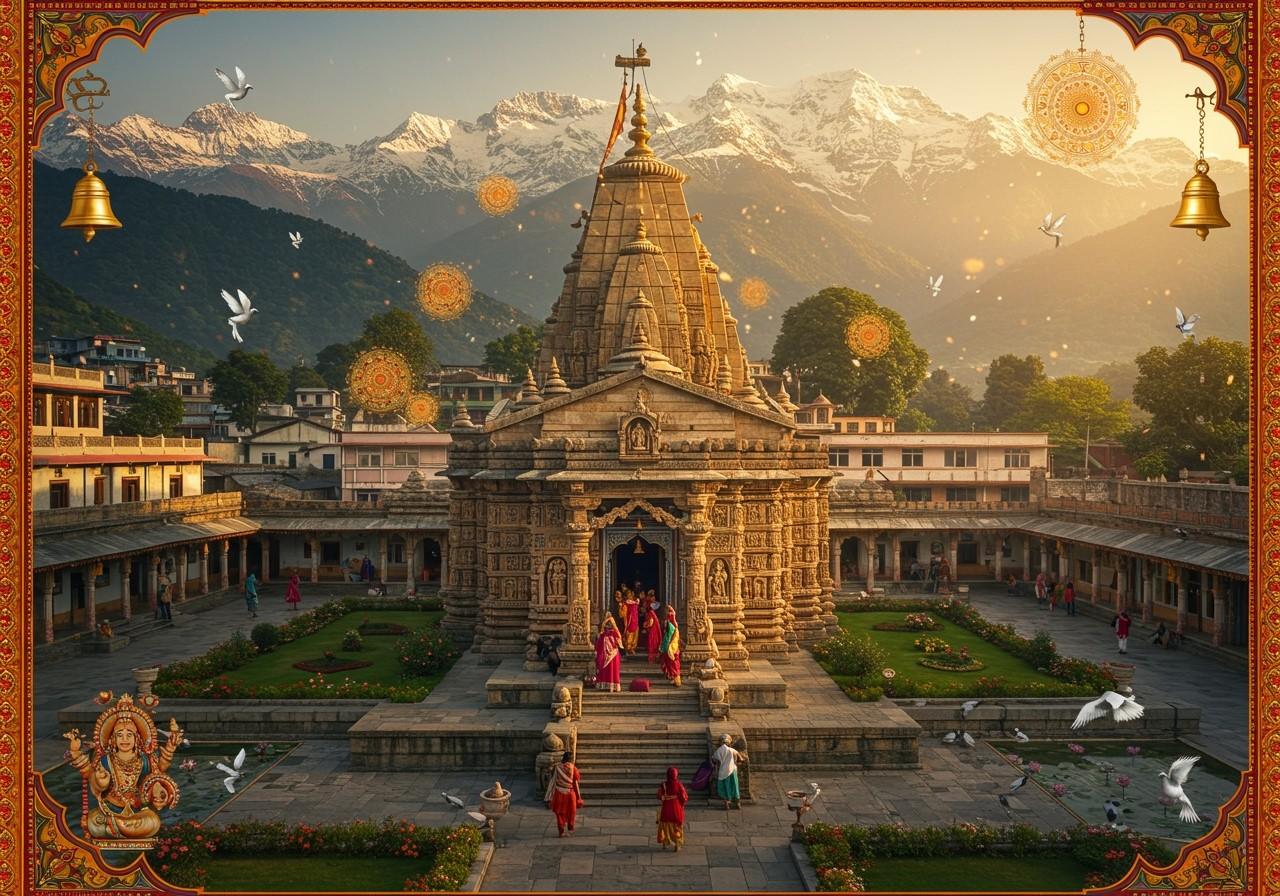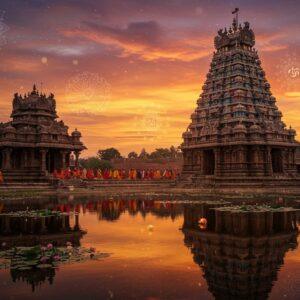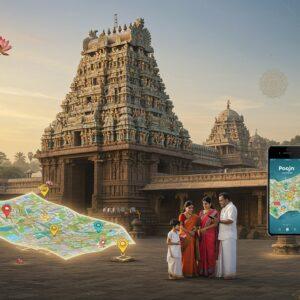
Welcome to Kangra, Himachal Pradesh, a land of ancient temples and rich cultural heritage. This sacred landscape has stood the test of time, offering spiritual solace to devotees from all over. Join us as we explore the history, architecture, and cultural significance of Kangra’s revered temples. For enhancing your spiritual journey, consider exploring the range of puja items and services available at poojn.in.
Historical Significance of Kangra
Kangra has a storied past dating back to ancient times. The Katoch dynasty played a significant role in shaping the region’s cultural and spiritual landscape. Invasions and conquests have influenced Kangra’s architectural and cultural heritage. The spread of Buddhism left its mark with many monasteries and stupas. The Kangra Fort, one of India’s oldest forts, is linked to the region’s spiritual heritage. Local artists and craftsmen contributed to Kangra’s unique temple architecture and art forms.
Key Temples of Kangra
Kangra is home to several significant temples, each with its unique history and spiritual importance:
- Jwalamukhi Temple: Dedicated to goddess Jwalamukhi, known for its eternal flame. This temple is a significant pilgrimage site and attracts devotees from all over.
- Chamunda Devi Temple: A revered Shakti Peeth vital to regional spiritual practices. It is located on the banks of the Baner River and is considered a powerful place of worship.
- Baijnath Temple: Dedicated to Lord Shiva, showcasing 13th-century architectural splendor. It is believed that worshiping here can bring blessings and healing.
- Masroor Rock Cut Temple: Monolithic rock-cut temples with intricate carvings. These unique temples are a testament to the architectural skills of ancient artisans.
- Kangra Devi Temple: Dedicated to goddess Kangra Devi, linked to the Katoch dynasty. This temple holds historical and spiritual significance for the region.
Plan your spiritual journey effectively with our comprehensive guide: Plan Your Spiritual Journey: A Poojn Guide.
Cultural Heritage and Traditions
Kangra’s spiritual practices are intertwined with rich cultural heritage and traditions. Unique rituals and festivals like Navratri at Jwalamukhi Temple and Shivratri at Baijnath Temple are celebrated with fervor. Local communities play a role in preserving and promoting the region’s heritage. Traditional arts, such as Kangra paintings depicting Hindu mythology, hold significant cultural value. Culinary traditions include offerings and prasad prepared for temple rituals. Oral traditions, folk songs, and dances enrich Kangra’s spiritual and cultural life. You can find authentic puja items and ingredients on poojn.in to enhance your observance of these traditions.
Architectural Marvels
Kangra’s temples showcase architectural brilliance with unique styles and craftsmanship:
- Nagara style: Seen in Baijnath Temple, this style features a curvilinear tower.
- Intricate carvings: Adorning Masroor Rock Cut Temple, these carvings depict deities and mythological stories.
- Local materials: Stone and wood used in construction, showcasing the region’s natural resources.
- Innovative techniques: Creating the eternal flame at Jwalamukhi Temple, a marvel of natural and spiritual significance.
Explore the tranquil haven of Chintpurni or witness the mystical flames of Jawalamukhi. Each temple offers a unique chapter in Kangra’s religious heritage. From the rock-cut marvel of Masroor to the historical Kangra Fort housing Brajeshwari Devi Temple, the journey through Kangra is a tapestry of divine experiences. Find everything you need for your spiritual practices at poojn.in.
Conclusion: A Journey Through Time and Spirit
As you conclude your spiritual sojourn through Kangra, take with you the serenity and spiritual richness that this sacred land offers. The ancient temples, steeped in history and tradition, stand as timeless guardians of faith and heritage. Every visit to Jwalamukhi, Chamunda Devi, Baijnath, Masroor, and Kangra Devi temples brings you closer to the divine and the rich cultural tapestry of this serene region. Enhance your spiritual experience with authentic products from poojn.in.
Kangra invites you to immerse yourself in its spiritual essence, where every stone tells a story, and every ritual connects you to centuries of devotion. Let the tranquil landscapes and the sacred flames of Kangra’s temples inspire your soul and fill your heart with peace. May your journey through Kangra be a blend of reverence and discovery, leaving you with cherished memories and a deeper connection to your spiritual roots.
FAQs on Spiritual Sojourn in Kangra – Temples History and Heritage
What is the history of Kangra? Kangra boasts a rich history dating back to ancient times, marked by the rule of the Katoch dynasty and numerous battles and rulers. The region is renowned for its rich cultural heritage and historical significance.
Which are the famous temples in Kangra? Kangra houses several renowned temples, including the Baijnath Temple, Chamunda Devi Temple, and Jwala Ji Temple, attracting pilgrims and tourists worldwide.
What is special about the Baijnath Temple? Dedicated to Lord Shiva, the Baijnath Temple is admired for its exquisite architecture and the belief that worshiping there can alleviate diseases and ailments. It is a historically rich and important pilgrimage site.
How old is the Baijnath Temple? Constructed in 1204 AD, the Baijnath Temple has withstood the passage of time and remains a prominent spiritual and historical landmark in Kangra.
Can you tell me about the Chamunda Devi Temple? Situated on the banks of the Baner River, the Chamunda Devi Temple is dedicated to Goddess Chamunda, a manifestation of Durga, and is regarded as a Shakti Peeth, attracting devotees seeking blessings and spiritual solace.
Why is Jwala Ji Temple significant? Jwala Ji Temple is renowned for its perpetually burning flames fueled by natural gas. As one of the 51 Shakti Peethas, it holds immense religious significance, with devotees believing the flames to be a manifestation of the Goddess.
How can I reach Kangra to visit these temples? Kangra is well-connected by road, rail, and air. Gaggal Airport, located approximately 12 km from Kangra, serves as the nearest airport. Regular bus and train services connect Kangra to major Indian cities.
What is the best time to visit Kangra for a spiritual sojourn? The ideal time to visit Kangra is during the pleasant weather periods from March to June and September to November, which are conducive to temple visits and exploration of the region’s heritage.
Discover a wide selection of spiritual products for your journey at poojn.in.


